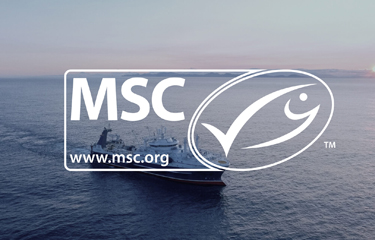MSC's new fisheries standard unanimously approved by trustees

After four years of input from over 1,000 stakeholders, the Marine Stewardship Council’s fisheries standard review process has finally concluded.
The MSC announced on 24 June its board of trustees unanimously approved the new version of the fisheries standard, which it has hailed as a “major achievement.” The new standard includes a new approach to how the MSC will manage its endangered, threatened, or protected (ETP) species, standards on shark-finning, new standards on how fisheries manage unwanted catch, and more.
According to the MSC, the new standard was the product of the “most-extensive consultation ever undertaken by the organization,” and included a wide range of stakeholders – including fisheries, scientists, assessors, NGOs, and more.
“It addressed some of the most-difficult issues facing the ocean, including protecting marine biodiversity, incentivizing stronger ocean governance, whilst providing tools to expand accessibility of the MSC’s market-based sustainability program to small-scale and emerging market fisheries,” the MSC said in a release.
The complete new version of the standards will be published in October 2022, and fisheries entering into assessment will have to begin using the new standard in May 2023. Currently certified fisheries will have six years to adjust to the new standards, a reduction from the last time the review was conducted.
MSC Board of Trustees Chair Werner Kiene said that the new standard is thanks to the work of the MSC’s scientists and the many members of governance bodies.
“The board is keenly aware of the importance of the MSC fisheries standard and its role in driving change in our ocean,” Kiene said.
The MSC has come under some criticism for some of the changes to the new standards, with some NGOs claiming the new standards will “tarnish” its reputation. However, Kiene said the MSC is confident the new standards establish a balance between the many competing interests.
“While there are sometimes competing views of what should be in the standard and where the bar is set, we strongly believe that this new version strikes the right balance between setting a high ambition for sustainability with the need to make sure that the requirements are practical for the best-performing fisheries around the world to implement over appropriate transition timelines,” Kiene said.
Some of the new standards established by the MSC include:
- New protections for ETP species intended to minimize any impacts to help populations recover.
- A “fins naturally attached” policy will now be mandatory in all fisheries retaining sharks, “strengthening the existing ban on shark-finning in MSC-certified fisheries”
- Existing standards have been streamlined, which the MSC said will help make assessments more efficient and improve accessibility to the standard.
- New measures for multi-jurisdictional fisheries managed by RFMOs “to secure credible, robust harvest strategies.’
- New evidence requirements on managing bycatch, including for species like marine birds.
“I am profoundly grateful for the enormous amount of stakeholder engagement and input over four years and for the dedication and hard work undertaken by MSC’s governance bodies that has enable MSC’s Board of Trustees to approve the new standard,” MSC Chief Executive Rupert Howes said. “On the eve of the United Nations Ocean Conference in Lisbon, the world’s attention is increasingly focusing on the critical need to ensure our ocean resources are managed sustainably, for this and future generations. MSC’s new fisheries standard will deliver real benefits and contribute to accelerating the delivery of the United Nations’ Sustainable Development Goals through the continued engagement and support of our partners. This is good news for the ocean, fishers, and consumers.”
Photo courtesy of the Marine Stewardship Council






Share